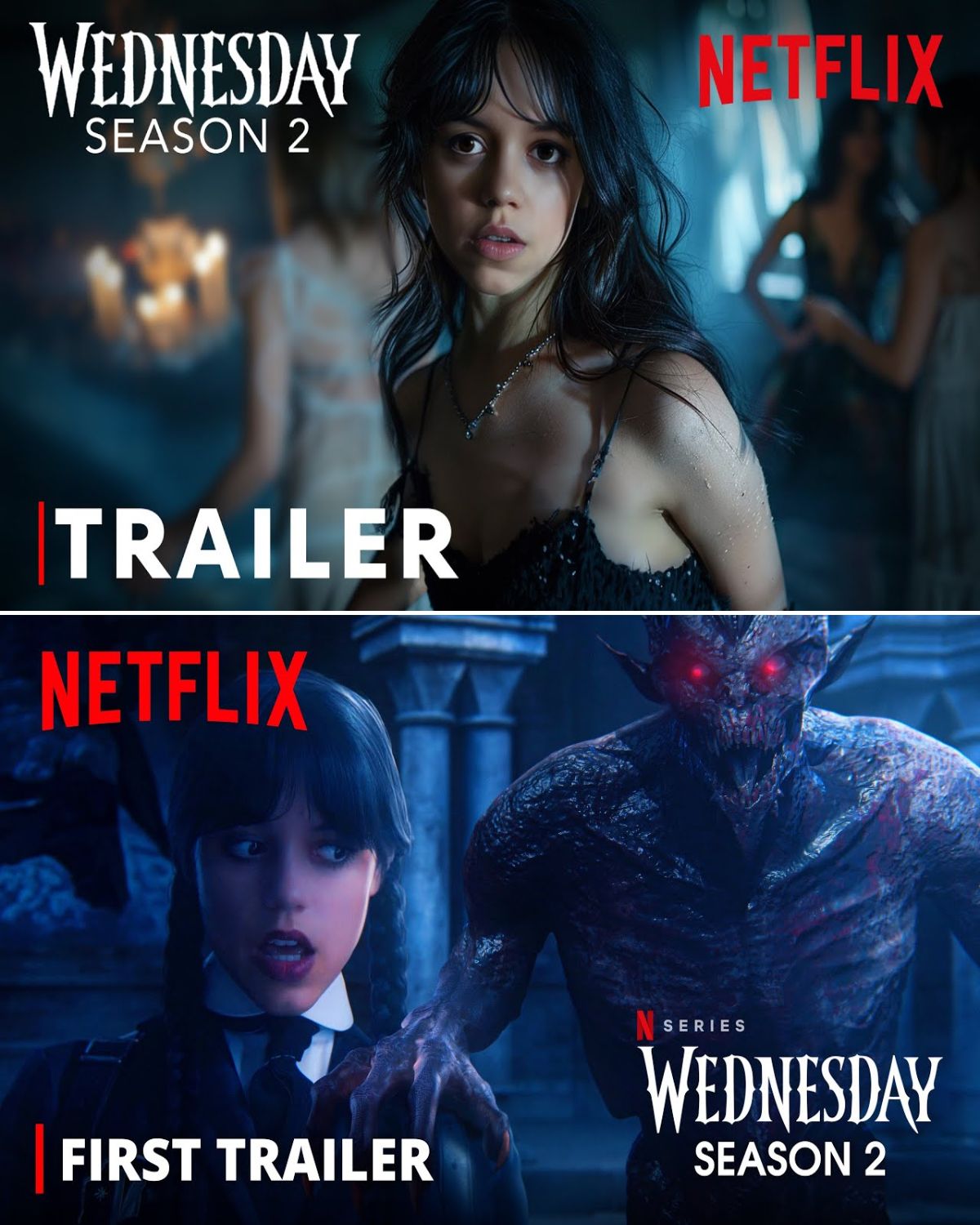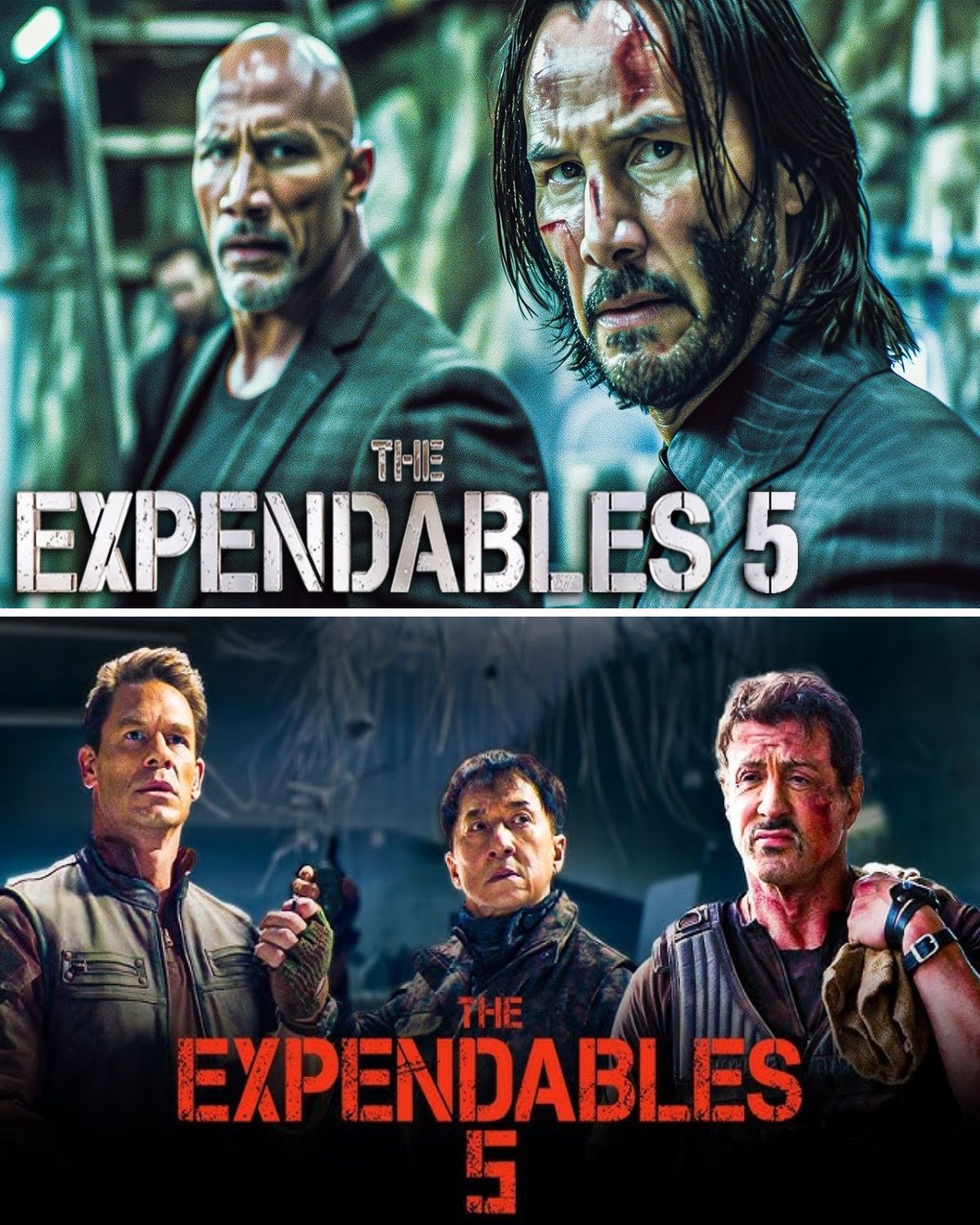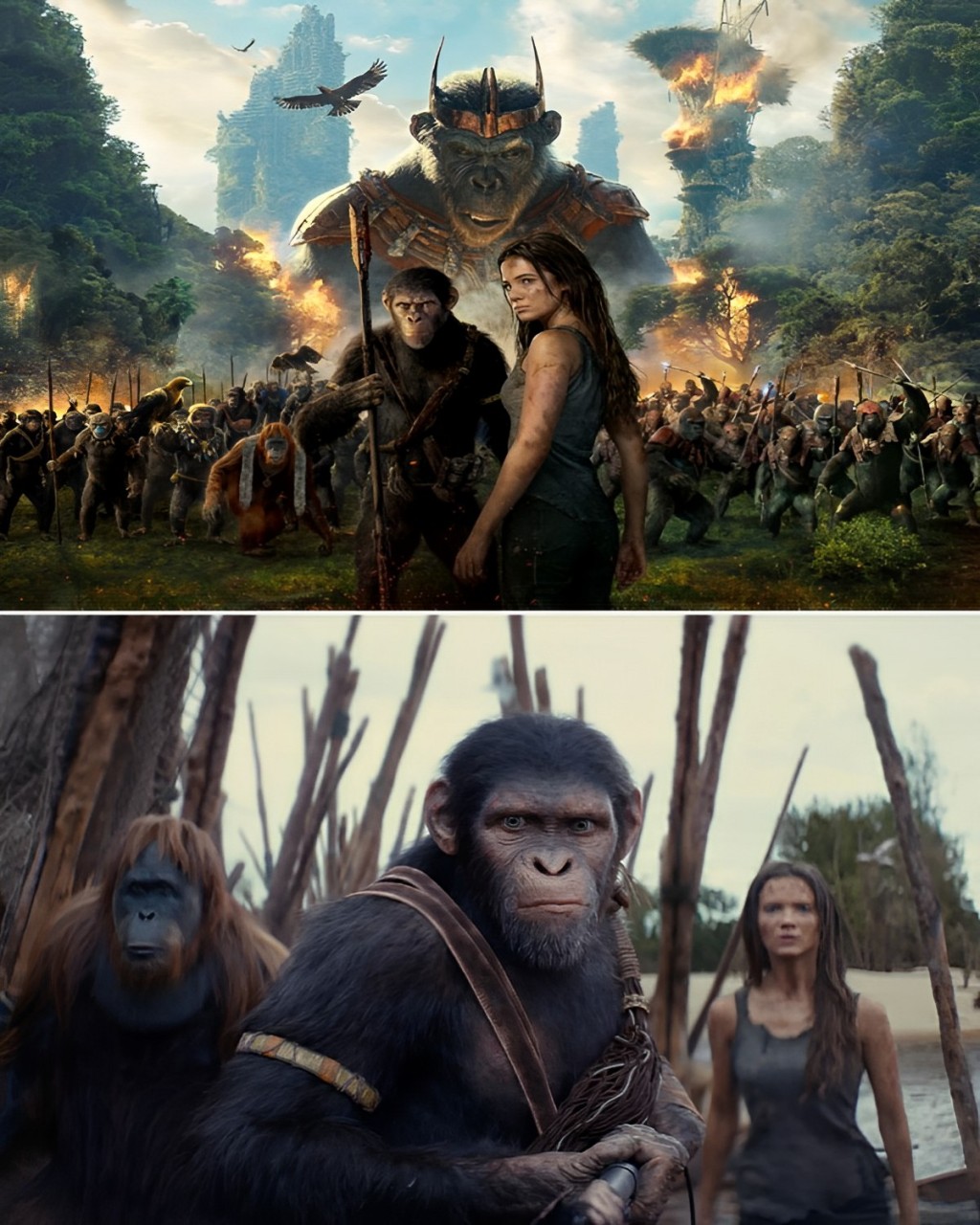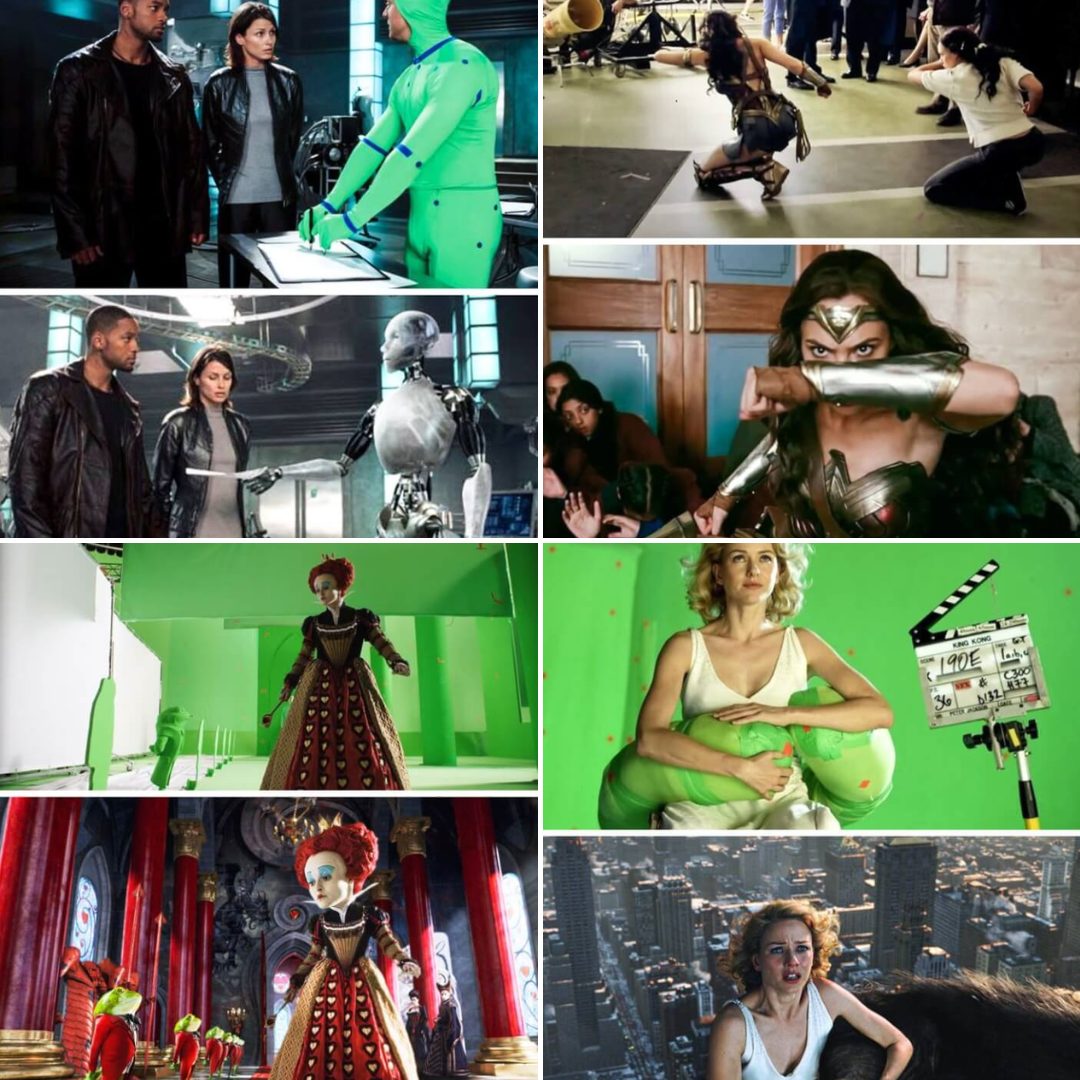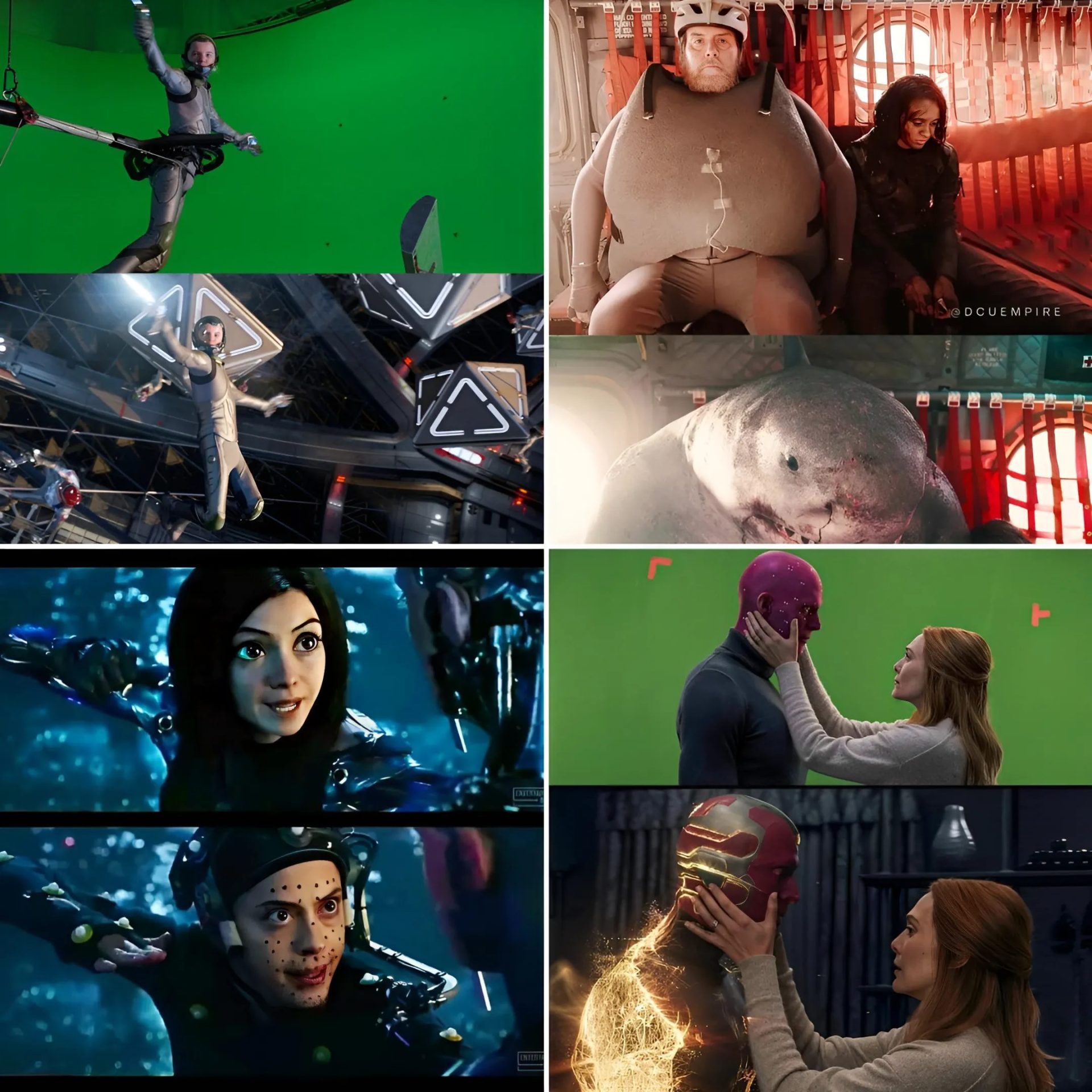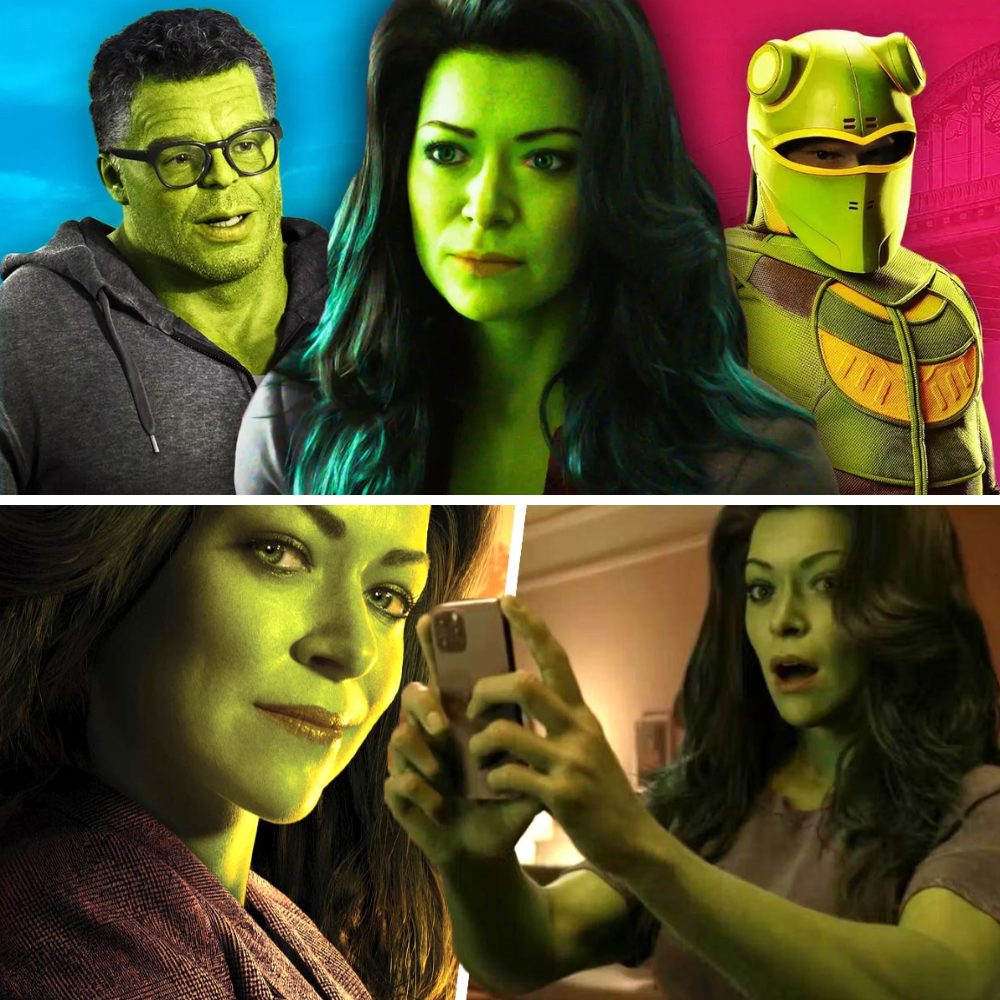
Marvel / Sony
To say it was a terrible year for Marvel superheroes at this point in 2023 is a bit like saying it was an amazing year for Taylor Swift — yes, everybody knows. But it hasn’t been all bad. There were some genuine triumphs for Marvel amid the smoldering wreckage of the year, and 2024 is looking brighter: “Deadpool 3” topped Fandango’s survey of the most anticipated movies of the year; “Echo” looks to break new ground for Marvel several times over; and “Agatha” promises to set queer and queer-adjacent hearts aflame with “Heartstopper’s” Joe Locke and Aubrey Plaza and Patti LuPone. Sony Pictures, meanwhile, is set to release three Marvel films in 2024: “Madame Web” with Dakota Johnson in February, “Kraven the Hunter” with Aaron Taylor-Johnson in August and “Venom 3” with Tom Hardy in November.
This year saw saw the releases of three MCU movies, “Ant-Man and the Wasp: Quantumania,” “Guardians of the Galaxy Vol. 3” and “The Marvels,” and three Disney+ TV shows, “Secret Invasion,” “Loki” Season 2 and the upcoming “What If…?” Season 2 over the holidays. On the Sony side of things, there was also “Spider-Man: Across the Spider-Verse” and the PlayStation video game “Spider-Man 2.”
Some of those, like “Spider-Verse,” “Guardians” and “Loki,” were incredibly well received, while others we’d like to forget about (we’re looking at you, “Ant-Man,” “Secret Invasion” and “The Marvels”). There was plenty of off-screen drama this year too, like the firings of Jonathan Majors, Victoria Alonso and Ike Perlmutter.
Saying goodbye to 2023, here is a look at Marvel’s most tumultuous year this century — the highs, the lows and the one low that is also kind of a high.
HIGH: “Black Panther: Wakanda Forever” Star Angela Bassett Makes Oscar History 
Photo : ©Walt Disney Co./Courtesy Everett Collection
This year’s Oscars, which seems like forever ago, were all about “Everything Everywhere All at Once,” but there was one moment that went down in Marvel history: Angela Bassett’s best supporting actress nomination for “Black Panther: Wakanda Forever.” In January, she became the first Marvel actor to receive an Oscar nod, and she’s the first woman and person of color from a comic book adaptation to be recognized for their acting by the Academy. Bassett ultimately lost to Jamie Lee Curtis from “Everything Everywhere,” but her tragic, stirring performance as a grieving Queen Ramonda moved the hearts of many Marvel fans and Oscar voters.
LOW: “Ant-Man and the Wasp: Quantumania” Bombs With Audiences and Critics

Photo : ©Walt Disney Co./Courtesy Evere
Marvel’s rough year at the box office started with February’s “Ant-Man and the Wasp: Quantumania.” Billed as the biggest “Ant-Man” movie yet, the third installment earned the largest opening ($106 million) of director Peyton Reed’s trilogy, but it was ridiculed by critics and fans alike and quickly shrank at the box office. Ticket sales dropped 69% in its second weekend, and “Quantumania” ended up grossing only $476 million worldwide – the lowest of all the “Ant-Man” films, and one of the rare MCU titles to lose money for Disney. The movie was also meant to introduce Jonathan Majors’ Kang the Conqueror, the next Thanos-level villain set to headline 2026’s “Avengers: The Kang Dynasty” — but “Quantumania” gave him only a lukewarm welcome, and, well, things got worse from there.
LOW: Disney Fires Longtime Top Marvel Studios Executive Victoria Alonso 
Photo : Getty
Just over a month after the release of “Quantumania,” Disney, in a shocking move, fired Victoria Alonso, Marvel Studios’ president of physical, postproduction, visual effects and animation. Alonso, who’d been with Marvel Studios since 2006, had become the most high-profile of studio chief Kevin Feige’s small inner circle of executives. Disney claimed that Alonso’s repeated promotion of the Oscar-nominated Amazon Studios film “Argentina, 1985” was in clear violation of her employment contract and the reason she was let go. Alonso, through a spokesperson, called that claim “absolutely ridiculous,” and sources further alleged she was fired instead for refusing to remove an LGBTQ image from “Quantumania” to allow the film to play in certain international territories. In April, Disney and Alonso resolved their dispute in a multimillion-dollar settlement, but the damage to Marvel Studios’ reputation for drama-free management had been done.
LOW: “Quantumania” and “Loki” Star Jonathan Majors Arrested, then Convicted, on Domestic Abuse Charges

Photo : ©Walt Disney Co./Courtesy Everett Collection
Five days after Marvel fired Alonso, Jonathan Majors was arrested in New York City in March for assaulting and harassing his now ex-girlfriend, which immediately put his position in the MCU as Kang into serious limbo and cast a pall over Marvel Studios’ long-term plans for the entire year as the trial unfolded. Marvel had planned on Majors’ time-traveling villain giving Earth’s Mightiest Heroes an even more formidable foe after they defeated Thanos in “Avengers: Endgame.” The actor had already played several variants of Kang in both seasons of “Loki” and “Quantumania” to start building up to “Avengers: The Kang Dynasty” in 2026. But in December, the studio finally — and swiftly — fired Majors hours after he was found guilty of misdemeanor assault and harassment. Whether Kang is recast, or a different villain is subbed in his place, the Majors’ controversy leaves Marvel with a massive headache and an unfortunate stain on this era of the MCU.
HIGH: Marvel Entertainment Merges With Marvel Studios — and Ike Perlmutter Leaves the Company

Photo : AP
Since Disney purchased Marvel in 2009, Marvel Studios has had an uneasy relationship with the rest of Marvel Entertainment, with the former overseen by Feige and the latter controlled by Marvel Entertainment CEO Ike Perlmutter. In 2015, Feige stopped reporting to Perlmutter as the MCU was fully separated from the rest of Marvel; four years later, Disney began repairing that rift, carving creative control of TV, comics and animation away from Perlmutter and handing it to Feige.
At the end of March, Disney completed that process, absorbing the rest of Marvel Entertainment into Marvel Studios and dismissing Perlmutter as part of company-wide layoffs. The move put all of Marvel under a single corporate umbrella for the first time since Disney purchased the company in 2009 (well, save for Sony’s rights to Spider-Man characters — foreshadowing for later!), and allowed Feige to capitalize on the full might of Disney’s operation. It also finally rid Marvel of Perlmutter, who was widely seen as an outmoded impediment, between his reputation for severe penny-pinching and reported hostility to broadening the MCU to include title characters who weren’t white men. Perlmutter’s on-again–off-again–on-again proxy battle for seats on Disney’s board of directors certainly didn’t endear him to Disney CEO Bob Iger, either.
HIGH: “Guardians of the Galaxy Vol. 3” Succeeds Where (Almost) Every Other Superhero Movie Failed 
Photo : Courtesy of Marvel Studios
In a year in which every other live-action superhero movie either underperformed or outright bombed, the final “Guardians” movie was a bona fide blockbuster in May, earning $845.6 million worldwide. The victory proved that audiences will still turn out for a superhero film, it just has to promise an experience that is visually distinctive, emotionally compelling and in some significant way unlike what they’ve seen before — more foreshadowing! In the case of “Vol. 3,” writer-director James Gunn turned the spotlight on Rocket Raccoon (voiced by Bradley Cooper), exploring the super-intelligent furry mammal’s poignant and heartbreaking backstory.
But even this success was bittersweet for Marvel Studios: It marked the end not just of the “Guardians” franchise (at least, as audiences have come to know it), but of Gunn’s relationship with the studio, as he takes the reins as the co-chief of rival DC Studios with Peter Safran.
HIGH: “Spider-Man: Across the Spider-Verse” Doubles the Success of “Into the Spider-Verse” 
Photo : Credit: Sony Pictures Animation
“Spider-Man: Across the Spider-Verse,” released by Sony Pictures in June, had a high bar to clear. Its predecessor, 2018’s “Spider-Man: Into the Spider-Verse,” brought new webslinger Miles Morales (Shameik Moore) to legions of fans, delivered one of the best Spidey stories ever told and won the Oscar for best animated feature. Somehow, the sequel delivered a nearly flawless follow-up: It raised the stakes on Miles’ story; made Spider-Gwen (Hailee Steinfeld) a true co-lead; introduced immediate fan-favorites like Spider-Punk (Daniel Kaluuya) and Pavitr Prabhakar (Karan Soni); brought us to several eye-popping new universes; and ended on a nail-biting cliffhanger. The result: “Across the Spider-Verse” out-grossed “Guardians Vol. 3” in the U.S. and Canada with $381.3 million, and nearly doubled global box office returns of “Into the Spider-Verse,” with $682.6 million. There were some complaints that “Across the Spider-Verse” was merely a half-finished story set to conclude with “Spider-Man: Beyond the Spider-Verse,” but there’s no denying it’s one of the best movies of 2023.
LOW: “Secret Invasion” Squanders Nick Fury’s Chance to Shine and Is Just Generally Terrible 
Photo : Gareth Gatrell / Courtesy of Marvel Studios
This Disney+ show boasted Samuel L. Jackson, Olivia Colman, Emilia Clarke, Don Cheadle, Ben Mendelsohn, Kingsley Ben-Adir, Martin Freeman, Cobie Smulders and utterly wasted them in a listless spy thriller that forgot how to thrill. The show wasn’t a complete loss: The first two episodes, released in June, did manage to explore Nick Fury’s identity as a Black man in America for the first time in the MCU, and Colman had a modicum of fun as an unscrupulous MI6 operative. But none of that outweighed the glut of meandering storylines, pointless fan-service and cheap, needless character deaths (RIP Maria Hill and Talos), nor did it make up for how dirty it did Cheadle’s Rhodey. When the full history of the MCU is written, let us all hope that this show is seen as its lowest point.
LOW (but Kind of a Secret HIGH): The Labor Strikes Delay Disney and Sony’s Superhero Release Slates 
Photo : Fox / Sony
The WGA and SAG-AFTRA labor strikes that stretched from May through early November caused significant ripple effects throughout the wider Marvel landscape. Sony pushed “Kraven the Hunter” from October 2023 to August 2024 and bumped “Spider-Man: Beyond the Spider-Verse” off the calendar entirely from its March 2024 release, with no replacement date announced. Disney, meanwhile, had to push back no fewer than nine MCU titles from their announced release dates, including “Deadpool 3,” “Captain America: Brave New World” and the “WandaVision” spin-off, “Agatha.”
In some cases, that may be a blessing in disguise. Bob Iger said repeatedly this year that Marvel Studios had dangerously overextended itself, an assessment that sources say is shared by Marvel executives. So the fact that 2024 contains only two live-action TV series (“Echo” in January and “Agatha” in the fall) and one feature film (“Deadpool 3”) just so happens to provide Marvel Studios with the creative breathing room it urgently needs.
HIGH: “Spider-Man 2” Is the Fastest-Selling PlayStation Studios Video Game in History 
Photo : Sony/Amazon
While the MCU has had a bumpy 2023, it’s been a banner year for Spider-Man, between “Across the Spider-Verse” and the “Marvel’s Spider-Man 2” video game, a feat of superhero storytelling in its own right. Released in October, the game put players in control of Peter Parker and Miles Morales as they save New York City from a variety of villains, like Venom, Kraven the Hunter and more. Swinging through the massive New York map, with the newly added Brooklyn and Queens boroughs, while seamlessly switching between the two webslingers is a treat that never gets old.
The two heroes each have dozens of costumes and their own unique moves, like Peter’s brutal symbiote powers and Miles’ electrifying venom-shock abilities, that make beating up goons a thrill. And the story rivals some of the big-screen Spidey iterations. Peter struggles to make ends meet as his old friend Harry Osborn mysteriously re-emerges, and Miles must learn the web-slinging ropes quickly as he faces his biggest challenges yet. The bar was high after the original 2018 game released, but “Spider-Man 2” goes down as one of the best superhero games of all time. No wonder it sold 2.5 million copies in its first 24 hours, and 5 million in 11 days, making it one of the fastest-selling PlayStation games of all time.
HIGH: “Loki” Season 2 Has a Perfect Ending — and May Have Solved the MCU’s Kang Problem, as Well

Photo : Marvel Studios
The second season for Marvel’s superlative Disney+ series came to an emotionally rousing and visually stunning conclusion in November: Tom Hiddleston’s god of mischief finally learned the value of fellowship through his deep connection with TVA agent Mobius (Owen Wilson) and Loki variant, Sylvie (Sophia Di Martino), only to leave them all behind in order to rescue the multiverse from obliteration by remaining alone at its center as the god of stories. Loki’s dominion over the multiverse also seemingly resolved the storyline of Jonathan Majors’ multiverse-hopping, infinite-variant spawning supervillain — at least enough that it wouldn’t egregiously disrupt the MCU’s overarching story should Marvel decide to pivot to a new villain. A win-win!
LOW: “The Marvels” Is the Lowest-Grossing Marvel Studios Movie of All Time

Photo : Laura Radford
“The Marvels” broke the wrong kinds of records when it opened in theaters in November. The 33rd movie in the MCU has the dishonor of earning the lowest domestic opening weekend ($47 million), the lowest domestic box office totals ($84 million) and the lowest global box office totals ($197 million) of all time for Marvel Studios. As a point of comparison, “The Incredible Hulk” — the second movie in the MCU, from 2008 — previously held those records. Disney CEO Bob Iger even weighed in on the movie’s lackluster box office performance, saying it suffered from a lack of “supervision” on set due to filming during the pandemic. He also admitted that Disney has “made too many” sequels lately, signaling a complete shift in strategy for the company, given that “The Marvels” served as a follow-up not just to the $1.1 billion-grossing “Captain Marvel,” but also the Disney+ series “WandaVision” and “Ms. Marvel.”
